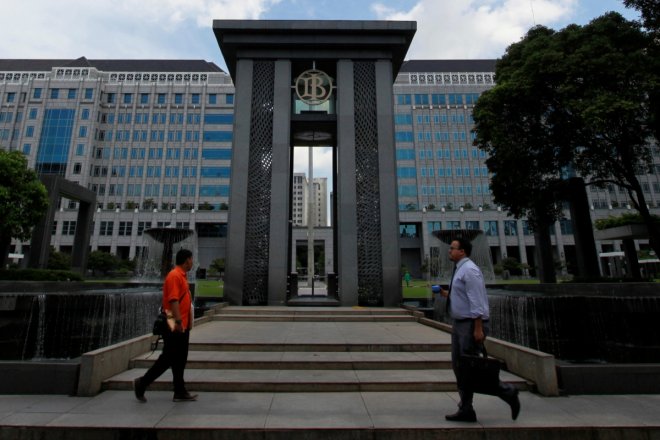
The Bank Indonesia is widely expected to keep the benchmark 7-day reverse repo rate at its record low of 4.75% at the policy decision on Thursday as economy is looking for stronger growth in the current year.
The Indonesian rupiah has been little changed so far this month but has gained in December and January, cumulatively up 1.5%, after the 3.7% decline in November.
USD/IDR pair traded in a range of 13,275-13,433 so far in February held near 13,330 ahead of the 16 Feb rate review.
Indonesia recorded an economic growth of 5.02% in 2016, better than the 2015 performance of 4.88% growth, in line with the central bank prediction.
During the fourth quarter of 2016, it expanded 4.94% year-on-year, slightly down from the Q3 growth of 5.01%, as government consumption slowed in line with its policy to reduce spending.
The most recent positive news on Indonesia was an upward outlook revision by rating agency Moody's Investors Service.
Moody's said on 8 February that it has revised the outlook on the Sovereign Credit Rating of the Republic of Indonesia from Stable to Positive and affirmed Indonesia's Baa3 (Investment Grade) issuer rating.
Moody's said Indonesia's vulnerability to external shocks is declining somewhat and is expected to continue as a result of government policies. It also said that the country's institutional strength and specifically the effectiveness of its policy organs is improving.
The central bank said it is expecting growth momentum to continue in Indonesia.
"The improving commodity price development and ongoing global economic improvement are expected to be able to support export performance of Indonesia," the BI said in a statement.
"With solid domestic demand and global increase, investment is estimated to continuously improve. Interest rate decrease is also expected to be able to boost domestic consumption and investment performance, which is supported by the implementation of Government Policy Package."
The BI said utilization of monetary easing space in a measured way by maintaining macroeconomic and financial system stability will also strengthen economic growth momentum in the future
Surplus Economy
As per the latest reports, current account deficit has narrowed in Indonesia and the balance of payments is kept as a surplus.
In Q4 this year, the current account registered a deficit of US$1.8 billion (0.8% of GDP) down from the Q3 deficit of US$4.7 billion (1.9% of GDP) as goods and primary income accounts improved.
Goods trade surplus increased as trading partner economies improved and global commodity prices rebounded, the central bank said.
The capital and financial account in Q4 recorded a sizeable surplus of US$6.8 billion, surpassing the current account deficit, although it was lower than the Q3 figures.
As a result, Indonesia's balance of payments (BOP) in Q4 recorded a surplus of $4.5 billion, leading to an increase in official reserve assets to $116.4 billion from $115.7 billion at the end of Q3 and $105.9 billion at the end of 2015.
The amount of reserve assets was adequate to finance 8.4 months of imports and government external debt repayment and well above the international standards of reserves adequacy, BI noted.









